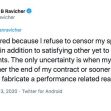A computer science professor at the University of Washington is suing the university claiming that it violated his First Amendment right to free speech.
The lawsuit is the result of a diversity and inclusion initiative put forward by the University of Washington. In 2020, the university, along with other universities across the nation, made intentional efforts toward broadening diversity and inclusion initiatives within the campus. As part of this intentional effort, on the university’s list of best practices, UW decided to include an initiative that suggested that faculty members add a land acknowledgment clause to their course material such as a class syllabus. The university offered the following land acknowledgment statement: “The University of Washington acknowledges the Coast Salish peoples of this land, the land which touches the shared waters of all tribes and bands within the Suquamish, Tulalip, and Muckleshoot nations.”
Instead of including the land acknowledgment statement on his course material, professor Stuart Reges contested the school's acknowledgment statement and instead included the following statement in his introductory course website and syllabus: “I acknowledge that by the labor theory of property the Coast Salish people can claim historical ownership of almost none of the land currently occupied by the University of Washington.”
The statement takes an oppositional approach to the University's original land acknowledgment statement. The professor instead references philosopher John Locke's theory that land belongs to the group of people who improve upon it. In the case of the land where the university sits, this would mean the Coast Salish community had no rights to the land.
In response to Reges’ statement, a university administrator instructed him to take down the statement because it created a “ toxic environment” and could be perceived as “defensive.” The University went on to erase Reges’ statement from his course website. Reges later re-uploaded the statement via a file format that could not be erased.
In his lawsuit, Reges claims that school administrators also created a “shadow” course for Reges’ class. The shadow course was taught by another professor in the form of recorded lectures. As a result of this alternative class, roughly 30% of students switched over from Reges’ course to the alternative one.
The university administrator also alerted the professor that a committee would be assembled to determine whether or not additional disciplinary action would be brought forward because Reges violated the school speech policy. According to the lawsuit, such disciplinary action could include a pay cut, suspension, or dismissal.
The school has denied violating the professor’s right to free speech, with spokeswoman Michelle Ma sharing in a statement that UW “continues to assert that it hasn’t violated Stuart Reges’ First Amendment rights.”
Reges maintains that the University is in violation of his rights because they have initiated a retaliatory investigation in an effort to coerce him into proclaiming speech that is not his own.
Magdalena Balazinska, the director of the engineering school at the university, has pushed back against Reges’ claim. She states that school administrators would not "ask any instructor who uses a land acknowledgment other than the land acknowledgment to remove or replace it." However, Reges contends in his lawsuit that there were other faculty at the school who used land acknowledgment statements that differed in verbiage from the school's suggested statement. Still, because the opinion of their statement was consistent with the school’s, they were not retaliated against.
In addition to seeking to have all disciplinary action against him dismissed, Reges’ lawsuit is asking to have the university’s policy regarding speech and conduct be eliminated.






